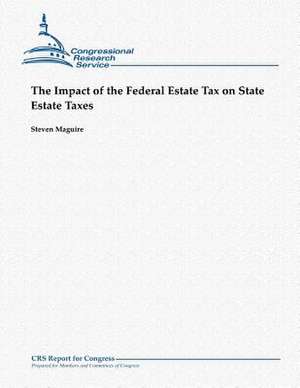The Impact of the Federal Estate Tax on State Estate Taxes
Autor Steven Maguireen Limba Engleză Paperback
Preț: 92.78 lei
Nou
Puncte Express: 139
Preț estimativ în valută:
17.75€ • 18.59$ • 14.69£
17.75€ • 18.59$ • 14.69£
Carte disponibilă
Livrare economică 15-29 martie
Preluare comenzi: 021 569.72.76
Specificații
ISBN-13: 9781481071420
ISBN-10: 1481071424
Pagini: 26
Dimensiuni: 216 x 280 x 1 mm
Greutate: 0.09 kg
Editura: CREATESPACE
ISBN-10: 1481071424
Pagini: 26
Dimensiuni: 216 x 280 x 1 mm
Greutate: 0.09 kg
Editura: CREATESPACE
